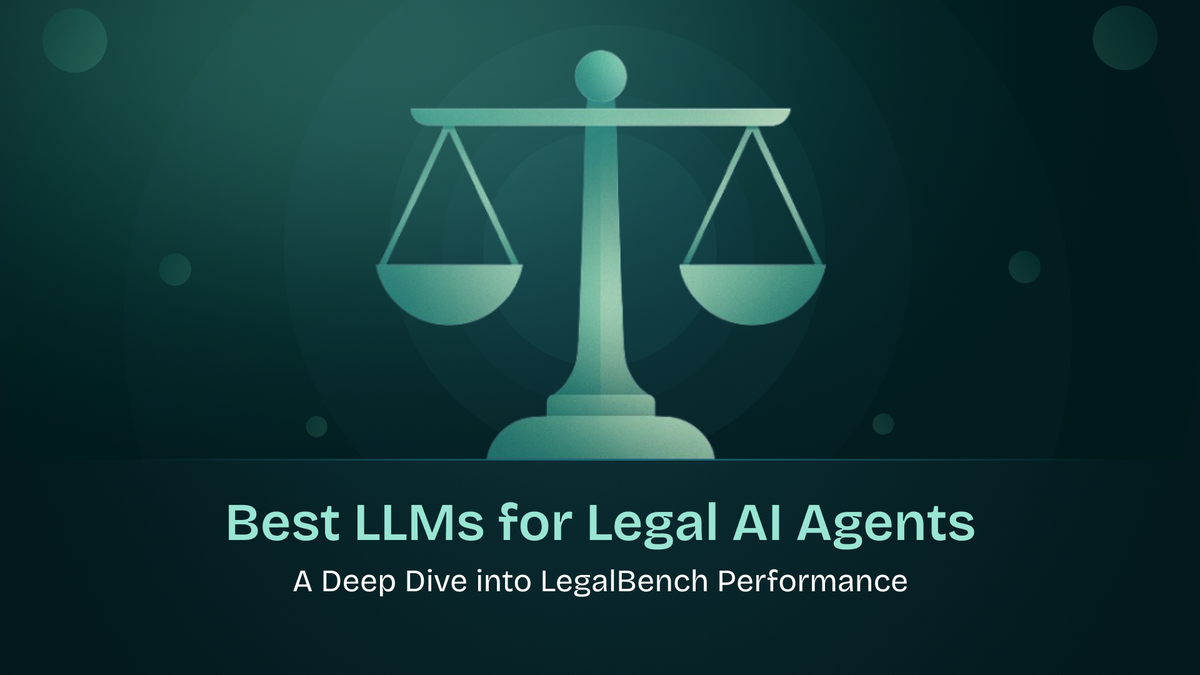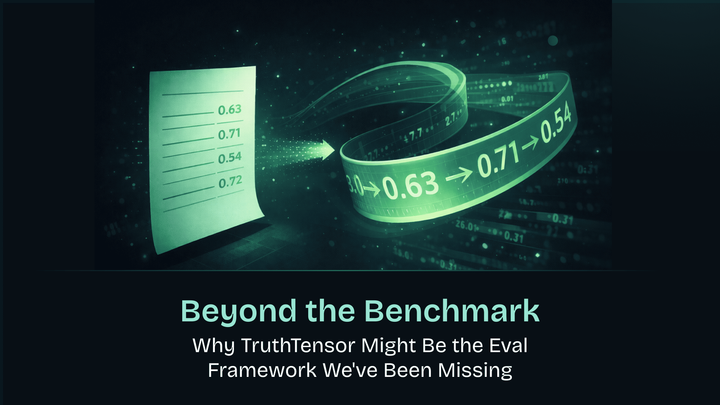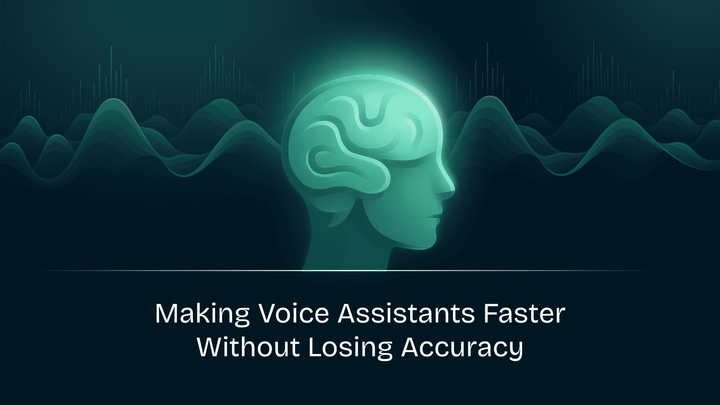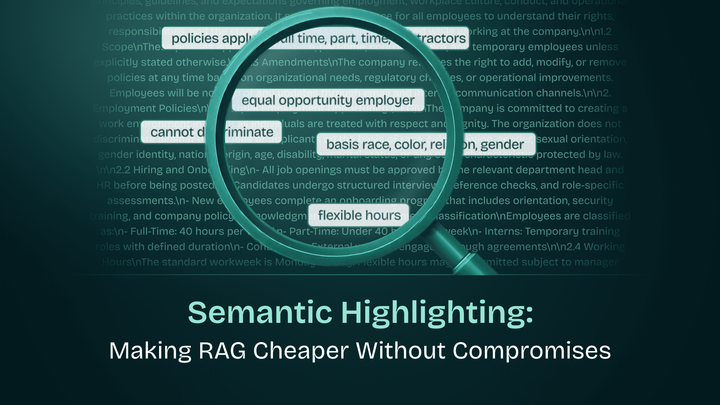Best LLMs for Legal AI Agents: A Deep Dive into LegalBench Performance

From contract analysis to legal research, from compliance monitoring to case preparation, artificial intelligence is transforming how legal professionals work. However, the stakes in legal practice are uniquely high. A single error can result in malpractice claims, regulatory violations, or adverse case outcomes. This reality makes choosing the right AI foundation model critical for any legal technology deployment.
Unlike some industries where AI mistakes might be inconveniences, legal AI systems must demonstrate exceptional accuracy, reliability, and sophisticated reasoning capabilities. But how do we measure these qualities in a meaningful way? The answer lies in specialized benchmarks that go beyond general AI evaluation: particularly LegalBench, the most comprehensive evaluation framework for legal AI performance.
Legal AI Agents in Action: Transforming Legal Practice
Before diving into the performance data, it's worth understanding how AI agents are already reshaping legal workflows across the industry. Legal AI agents have moved beyond chatbots. They're sophisticated systems capable of multi-step reasoning, complex document analysis, and intelligent workflow automation.
Document Analysis and Review
Large law firms deploy AI agents to process thousands of pages in discovery, identifying privileged documents, extracting key facts, and flagging potential issues. These systems can work 24/7, maintaining consistent quality while dramatically reducing review costs.
Contract Intelligence
AI agents analyze contract portfolios to identify risks, track obligations, and flag renewal dates. They can compare contract terms across hundreds of agreements, ensuring consistency and highlighting deviations from standard language.
Legal Research and Case Analysis
Modern legal AI goes beyond keyword searches, understanding legal concepts, synthesizing case law, and identifying relevant precedents based on factual similarity rather than just textual matches.
Compliance Monitoring
AI agents continuously monitor regulatory changes, assess their impact on client operations, and generate compliance recommendations. They can track multiple jurisdictions simultaneously and flag conflicts between regulations.
Brief and Motion Drafting
Advanced AI agents assist with legal writing, generating first drafts of motions, briefs, and legal memoranda based on case facts and desired legal arguments, while maintaining proper citation format and legal reasoning structure.
The key distinction between legal AI agents and simple question-answering systems lies in their ability to handle multi-step workflows, maintain context across complex tasks, and integrate with existing legal technology stacks. However, the effectiveness of these systems depends entirely on the underlying language model's legal reasoning capabilities.
Understanding LegalBench: The Gold Standard for Legal AI Evaluation
LegalBench represents a breakthrough in AI evaluation methodology specifically designed for the legal domain.This benchmark evaluates models on the precise skills that matter in legal practice through six critical categories of legal reasoning.
Source of Benchmarks - Link
The Six Pillars of Legal Reasoning
- Issue-Spotting: The fundamental skill of identifying legally relevant facts within complex scenarios. This tests whether a model can recognize when specific facts trigger particular legal rules or create potential liability. For example, determining whether certain business practices constitute antitrust violations or identifying GDPR compliance issues in data processing workflows.
- Rule-Recall: The ability to accurately identify and state relevant legal rules, statutes, and regulations. This goes beyond memorization, models must understand which rules apply in specific contexts and articulate them correctly. Success here indicates whether an AI can serve as a reliable legal research assistant.
- Rule-Conclusion: Perhaps the most sophisticated task, requiring models to predict legal outcomes based on given facts and applicable law. This tests the model's ability to apply legal reasoning methodologies and reach sound conclusions, essentially mimicking how lawyers analyze cases.
- Rule-Application: Understanding how courts and legal authorities have applied rules in practice. This requires analyzing legal precedents, understanding judicial reasoning, and recognizing how similar facts have been treated in past cases.
- Interpretation: The complex skill of parsing legal text, understanding statutory language, and extracting meaning from contracts, regulations, and case law. Legal documents often contain ambiguous language that requires sophisticated interpretation.
- Rhetorical Understanding: Recognizing the function and strategy behind legal arguments. This tests whether models understand not just what legal arguments say, but why they're structured in particular ways and what they're trying to achieve.
Why LegalBench Matters
Traditional AI benchmarks test isolated capabilities through single-question formats. LegalBench goes deeper, evaluating models on realistic legal scenarios that require sustained reasoning and domain expertise. The benchmark includes both multiple-choice questions and free-response tasks, testing models' ability to provide detailed legal analysis rather than just selecting correct answers.
The evaluation covers diverse areas of law, from constitutional principles to contract interpretation, from regulatory compliance to tort analysis. This comprehensive scope ensures that strong performance indicates genuine legal competency rather than narrow expertise in specific legal domains.
The Performance Landscape: Top 10 LLMs for Legal Applications
Based on the latest LegalBench evaluation results, here's how the leading language models stack up for legal AI applications:
| Rank | Model | Accuracy | Cost In / Out | Latency |
|---|---|---|---|---|
| 1 | GPT 5 | 84.6% | $1.25 / $10.00 | 14.75 s |
| 2 | Gemini 2.5 Pro Exp | 83.6% | $1.25 / $10.00 | 3.51 s |
| 3 | Grok 4 | 83.4% | $3.00 / $15.00 | 24.22 s |
| 4 | Gemini 2.5 Flash Preview (Nonthinking) | 82.8% | $0.15 / $0.60 | 0.43 s |
| 5 | o3 | 82.5% | $2.00 / $8.00 | 5.14 s |
| 6 | Grok 3 Mini Fast High Reasoning | 82.0% | $0.60 / $4.00 | 4.92 s |
| 7 | Grok 3 | 82.0% | $3.00 / $15.00 | 0.44 s |
| 8 | GPT 4.1 | 81.9% | $2.00 / $8.00 | 0.42 s |
| 9 | Claude Opus 4.1 (Nonthinking) | 81.9% | $15.00 / $75.00 | 2.53 s |
| 10 | Gemini 2.5 Flash Preview (Thinking) | 81.8% | $0.15 / $3.50 | 2.66 s |
LegalBench Dataset on Hugging Face
Tier 1: Elite Legal Performers
- GPT-5 (OpenAI) - 84.6% Accuracy The current frontrunner demonstrates exceptional legal reasoning across all categories. GPT-5's sophisticated understanding of legal concepts, combined with strong analytical capabilities, makes it the top choice for mission-critical legal applications. Its performance particularly shines in rule-application and legal interpretation tasks.
- Gemini 2.5 Pro Exp (Google) Google's experimental model shows impressive legal competency, particularly excelling in issue-spotting and rule-recall tasks. However, organizations should be aware of potential content moderation challenges that may interfere with legitimate legal queries involving sensitive topics.
- Grok 4 (xAI) Elon Musk's latest AI offering demonstrates surprisingly strong legal reasoning, positioning itself as a serious alternative to established models. Grok 4 shows particular strength in rhetorical understanding and legal argument analysis.
Tier 2: Strong Legal Contenders
4. Gemini 2.5 Flash Preview (Google) The non-thinking variant offers solid performance with faster response times, making it suitable for high-volume legal research tasks where speed matters more than deep analytical capabilities.
5. o3 (OpenAI) OpenAI's reasoning-focused model excels at complex legal analysis but tends toward verbose responses. While its deep reasoning capabilities are valuable for complex legal problems, the verbosity may require additional processing in production environments.
6. Grok 3 Mini Fast High Reasoning (xAI) This efficiency-focused variant provides strong performance while maintaining speed, particularly valuable for firms handling high-volume document analysis and routine legal tasks.
Tier 3: Reliable Legal Assistants
7. Claude 3.7 Sonnet Thinking (Anthropic) Demonstrates solid legal reasoning with particular strength in following specific output formatting requirements—crucial for legal applications where precise document structure matters.
8. Claude 3.5 Sonnet (Anthropic) While lacking the advanced thinking capabilities of newer models, Claude 3.5 Sonnet provides reliable legal analysis with excellent format compliance, making it suitable for structured legal document generation.
9. Llama 3.1 405B (Meta) Meta's flagship model offers competitive legal performance with the advantage of being open-source, appealing to organizations with specific data privacy requirements or custom deployment needs.
10. Claude 3 Opus (Anthropic) Despite being an earlier model, Opus maintains relevance in legal applications, though it may struggle with certain complex procedural questions compared to newer models.
Real-World Performance Insights
The LegalBench results reveal several critical insights for legal practitioners:
Performance Varies by Legal Task Type
Even the highest-performing models show significant variation across different types of legal reasoning. A model that excels at contract interpretation might struggle with procedural rule recall. This suggests that legal AI implementations should carefully match models to specific use cases rather than assuming universal competency.
The Complexity Challenge
The fact that even the top-performing model achieves only 84.6% accuracy underscores the sophisticated nature of legal reasoning. This performance gap highlights the continued need for human oversight and the importance of designing AI systems with appropriate safeguards and human-in-the-loop workflows.
Format Compliance Matters
Legal applications often require specific output formats, particular citation styles, document structures, or response formats. The evaluation revealed significant differences in models' ability to follow formatting instructions, which can be crucial for integration with existing legal workflows.
Strategic Considerations for Legal AI Implementation
For Large Law Firms
Organizations handling complex, high-stakes legal matters should prioritize the highest-performing models like GPT-5, despite higher costs. The superior accuracy and reasoning capabilities justify the investment when errors could result in significant liability.
For Solo Practitioners and Small Firms
Models like Grok variants or Claude 3.5 Sonnet offer the best balance of performance and cost-effectiveness. These models provide solid legal reasoning capabilities without the premium pricing of top-tier options.
For Legal Tech Companies
Open-source options like Llama 3.1 405B provide flexibility for custom implementations while maintaining competitive performance. The ability to fine-tune and deploy privately may outweigh slightly lower benchmark scores.
For In-House Legal Teams
Organizations with specific regulatory or compliance needs should consider models with strong rule-recall and interpretation capabilities, even if they're not the highest performers overall.
The Future of Legal AI
The LegalBench results represent a significant milestone in legal AI development, but they also highlight how much progress remains. As models continue to improve, we can expect to see:
Enhanced Reasoning Capabilities: Future models will likely demonstrate better performance across all categories of legal reasoning, approaching human-level accuracy in specialized areas.
Domain Specialization: We may see models specifically trained for particular areas of law: regulatory compliance, contract analysis, or litigation support, rather than general-purpose legal AI.
Integration Sophistication: Better integration with legal research databases, case management systems, and document review platforms will make AI agents more valuable in daily legal practice.
Ethical and Regulatory Frameworks: As legal AI becomes more powerful, we'll see increased focus on ensuring AI systems meet professional responsibility requirements and maintain appropriate human oversight.
Conclusion
The LegalBench evaluation provides unprecedented insight into which language models are truly capable of sophisticated legal reasoning. While GPT-5 currently leads the field, the competitive landscape shows rapid evolution with strong alternatives emerging.
Legal professionals considering AI adoption should focus not just on raw performance scores but on how different models align with their specific use cases, risk tolerance, and integration requirements. The 84.6% accuracy ceiling reminds us that current AI remains a powerful tool to augment human expertise rather than replace legal judgment.
As these models continue to evolve, the legal profession will need to adapt workflows, update ethical guidelines, and reimagine how legal services are delivered. Those who thoughtfully integrate AI while maintaining appropriate human oversight will likely find themselves at a significant competitive advantage.
The future of legal practice isn't about AI versus lawyers: it's about lawyers empowered by AI working more efficiently, accurately, and strategically than ever before. The LegalBench results provide a roadmap for making that future a reality.


